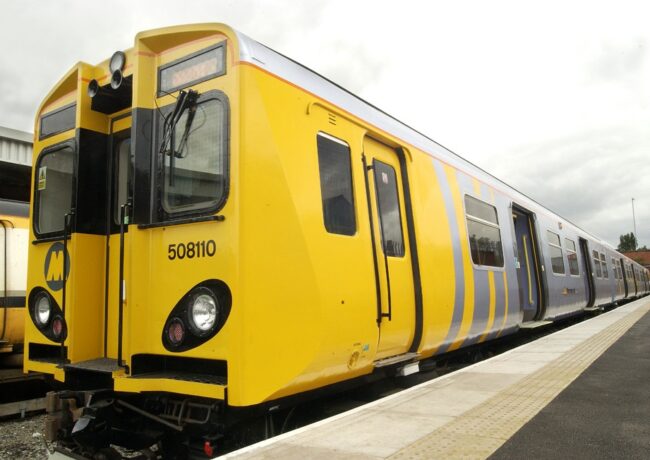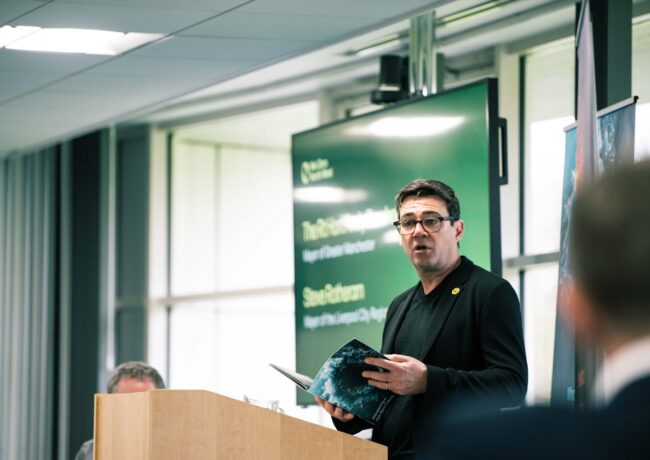Merseytravel explores case for new rail fleet
New trains could be running on the Merseyrail network by the early 2020s, Merseytravel said as it prepares to vote on the business case to replace the ageing fleet on 1 October.
New trains are now considered the best option in meeting growing demand on the network and supporting the city region’s economic ambitions, while also presenting the best value for the public purse. The move follows the development of a detailed business case which looked at all options from refurbished stock to new stock now or in future. The current fleet is approaching 40 years old, is amongst the oldest in the UK and is close to the end of its operational life.
A spokesman for Merseytravel said: “A new set of trains from the early 2020s is considered the best option to support the delivery of the City Region’s Long Term Rail Strategy by providing a fleet that could carry significantly more passengers and run on a potentially extended network. More immediately, it would build on the current high levels of performance and customer satisfaction, which are proving increasingly challenging and costly as the existing fleet ages.
“A further 40% increase in passenger numbers is expected by 2028, with some parts of the Merseyrail network predicted to be way over capacity –160% filled – by 2043. New trains that can carry more people and with shorter journey times will help meet growing demand on the network, of which parts are already close to capacity at peak times.”
The faster journey times and increased capacity would present a significant economic boost to the City Region, worth an estimated £70m per year and would stimulate the creation of around 1,000 jobs.
The Merseytravel Committee will take a decision at its meeting on 1 October as to whether to approve the commencement of the procurement process for new trains. If agreed, an OJEU notice, which invites bidders to submit their plans will then be published. Should approval to proceed be given, it is expected that a preferred bidder would be identified in around 12 months’ time, with city region leaders then asked to approve the project going ahead.
In approving the LTRS, Combined Authority leaders have already acknowledged the need for a new fleet within the next 30 years in order to deliver aspirations of Merseyrail services to places such as Warrington and Crewe.
Worth around £400m, the programme which also includes significant investment in infrastructure such as depots and power supplies, would be funded at no additional cost to the local tax payer, making use of finances already set aside.
Merseytravel chief executive, David Brown, said: “Doing nothing is not an option. The fleet is amongst the oldest in the UK and we want to ensure that we’re geared up to maintain the high standards people have come to expect from Merseyrail, as well as ensuring the fleet can cope with a significant increase in passenger numbers.
“This is not just about new trains, but what they will enable us to do. They will help us improve links within and beyond the city region, supporting our own ambitions and those of the wider Northern Powerhouse agenda, as well as benefitting us in very real economic terms, stimulating the creation of jobs and contributing millions of pounds every year to the Liverpool City Region economy.”





if they can make a case for that ridiculously expensive office building, then a case for new rail stock will be a doddle.
By Nick
Liverpool’s hybrid underground/suburban rail system provides an excelent service considering how little investment there has been from central government since the late 1970s when the loop-link lines were constructed. However, it is now very often severely overcrowded both at peak times and in the evening as it struggles to cope with Liverpool’s increasing popularity. Although I live in Chester and work in North Wales I use both the Wirral and Northern lines many times every week and see how it is stretched. Central government should provide similar funding to upgrade and expand Liverpool’s rapid transit system in a similar way that it has funded Manchester’s trams. This will support an expanding economy that will act as a second pole to drive the North West and North Wales forward.
By Paul Blackburn